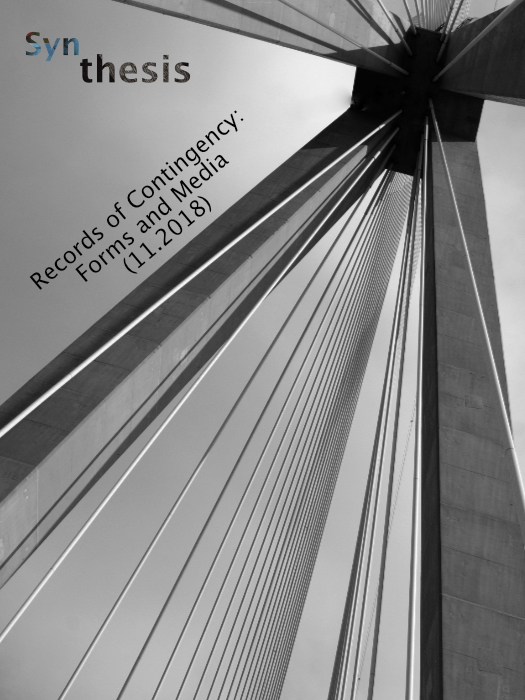Contingency as Medium in Gertrude Stein

Abstract
Gertrude Stein questions the event as an external and contingent accident, to be at least subsumed within the continuum of thinking —the untimely flux of interiormeditation and creation. Throughout her prolific production, one of Stein’s majorattempts was to do away with the event in literature, to dispense with it, to play against it. Stein pointedly selected as her topic the contingency of life within historical time, in her several autobiographical texts from The Autobiography of Alice B. Toklas (1932) to Wars I Have Seen (1944). Wars I Have Seen proves to be a singular work which helps us realise the process through which Stein resists historical contingency. As this essay argues, Wars I Have Seen gives us a remarkable vision of Stein trying to resist the pressure of History, and a vision of literature trying to hold at bay the contingency of events.
Article Details
- Section
- Articles

This work is licensed under a Creative Commons Attribution 4.0 International License.
The copyright for articles in this journal is retained by the author(s), with first publication rights granted to the journal. By virtue of their appearance in this open access journal, articles are free to use with proper attribution. Synthesis retains the worldwide right to reproduce, display, distribute, and use published articles in all formats and media, either separately or as part of collective works for the full term of copyright. This includes but is not limited to the right to publish articles in an issue of the Journal, copy and distribute individual reprints of the articles, authorize reproduction of articles in their entirety, and authorize reproduction and distribution of articles or abstracts thereof by means of computerized retrieval systems.



